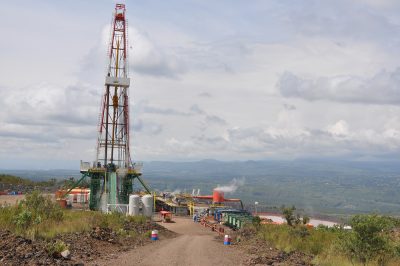Money tightening for the green sector
A very good article of Renewable Energy World looks at the view of venture capitalists on the renewable energy sector under the current market conditions.
A very good article of Renewable Energy World looks at the view of venture capitalists on the renewable energy sector under the current market conditions.
In the article the author describes her experiences brought home from the Clean Tech Investor Summit, which brought together venture capitalists and emerging clean tech companies together in California in January. “In the session that addressed strategies for clean-tech financing in a credit-constrained world, panelists presented a sobering vision of the financial markets today. Money will be very tight in 2009 and when the crisis will end is not clear.”
Basic take away keys from the article:
- “Get Through the next 12 months”,
- Tax equity market basically dead,
- Hurt debt markets with high fees,
- current investment environment favors late-stage development or construction-ready projects, with the focus on low-risk deals in wind, biomass and solar,
- clear need for federal renewable portfolio standards.
Based on the author one statement was that “a ‘huge’ amount of capital to flow into clean tech in the coming years, especially if the developing world “leapfrogs” into the 21st century instead of reliving the 20th.
But for the short term, the financial crisis is likely to take its toll on the clean tech sector. Only very conservative projects are being considered, said Scott Brown, CEO, New Energy Capital, one of the bankers and corporate leaders assembled for the summit’s financing panel session.
“The tax equity markets are really dead,” said Brown. “It’s difficult to get projects built, across the whole sector. The big banks have pulled back. The debt markets are hurt. Fees are high.”
According to the panelists, the current investment environment favors late-stage development or construction-ready projects, with the focus on low-risk deals in wind, biomass and solar.
The clean tech market is “tough” right now, said Brown, and until there’s stability in the markets, panelists agreed, the short term outlook won’t change.
“The long term is positive, but we need to have certainty, that’s the key,” said Jeff Lipton, managing director, Jefferies & Company.
GE Energy Financial Services managing director, renewable energy, Kevin Walsh, said there is a “lot of distressed paper in the secondary market” and his company is busy reducing leverage. He said GE wants to be active but can’t find partners.”I do share the optimism in Washington,” said Walsh, “but 2009 will be tough.”
Solar projects may attract funding, but only those that have been in the works for a while, and Gary Vollen, managing director at Stanford Group Co., said his company focuses on geothermal. “But we like a lot of sectors,” said Vollen. “Waste-to-energy is interesting and the smart grid and energy efficiency will be fairly easy to finance.”
Jeffries and Company’s Lipton said the fuels markets are over capacity and over-leveraged, which will drive merger and acquisition activity, but the federal stimulus bill could create some bright spots in the areas of weatherization, efficiency and combined heat and power (CHP).
“Companies will look at tapping into the stimulus package, companies that are in the smart grid and efficiency,” said Lipton. “The long term is positive. We just need to get through the next 12 months.”
Pacific Gas & Electric (PG&E) Chairman , CEO and President, Peter Darbee, expressed a more upbeat message, although it was tempered with realism. Darbee said PG&E will investigate the full spectrum of opportunities the smart grid and smart meters offer and “the great new opportunity we see in the electric car” in the 2010 to 2020 timeframe.
PG&E also expects to do more with solar energy. “We’ll see major central solar and solar on a more disparate distributed basis, on rooftops,” said Darbee. “We have been the procurer before but we’ll move to be equity investors. We will look at wind, but that will be secondary.”
Those looking to do business with regulated utilities need to know their market, Darbee warned. “You could bankrupt your company waiting for a utility.”
Andrew Beebe, managing director at Suntech Energy Solutions, a unit of Suntech Power Holdings Co., one of the world’s largest photovoltaic module makers, said roadblocks for new solar installations in the U.S. include siting issues, environmental review and the lack of a federal renewable portfolio standard. Beebe warned companies not to rely on those factors changing any time soon.
“No one should build a business plan around pending legislation,” he said. “It’s going to be a brutal year for solar and we’ll see a lot of companies going out of business.”
Source: Renewable Energy World (Power Engineering International)











